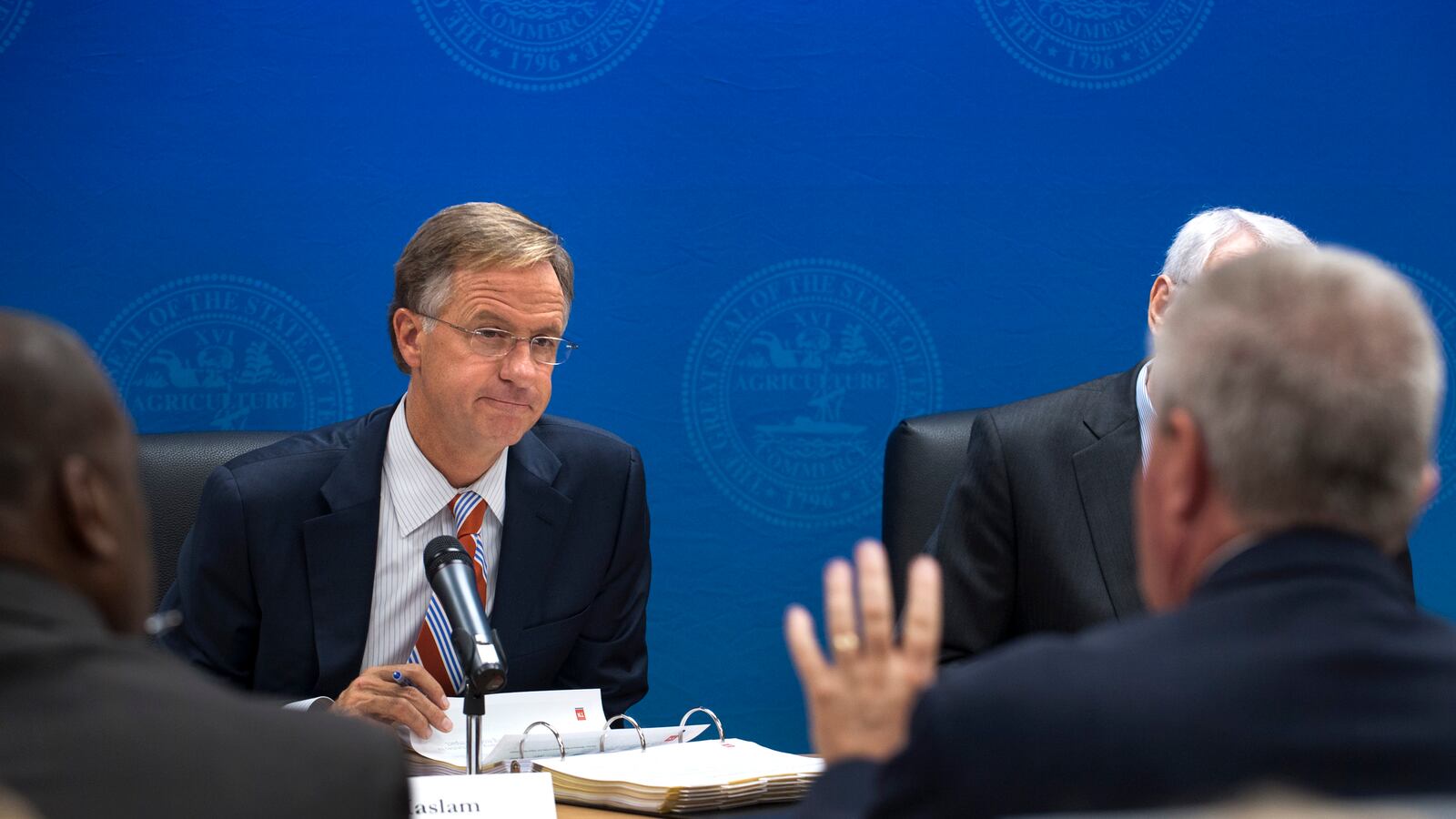When education chief Candice McQueen makes her first budget pitch to Gov. Bill Haslam on Wednesday, she’ll offer a glimpse into how the state is responding to growing calls for change in the way it funds schools.
Education makes up one of the largest slices of Tennessee’s spending, getting 41 cents of every tax dollar the state takes in. But district leaders say that the formula used to fund schools underestimates the cost of educating students. This year, some of them began making their case in two high-profile lawsuits.
Those suits are likely to take years to wind through the courts. But change could happen as soon as next year, as state revenues are rebounding and Haslam says his conversations with educators about the state’s school funding formula are influencing his thinking.
“We will definitely have part of our budget proposal address how we fund education,” he said Tuesday.
The final spending plan for the 2016-17 fiscal year won’t be decided until next spring, when Haslam and legislators will hash out a final budget that reflects department proposals. Still, McQueen’s presentation will highlight the State Department of Education’s priorities moving forward and offer a starting point for discussions.
Here are some of the questions that Wednesday’s budget hearing could begin to answer:
Will McQueen ask for more money to address concerns about the BEP?
Part of McQueen’s job is to propose how much schools should receive in addition to what the state provides through its Basic Education Program formula, known as the BEP.
That formula, which is meant to ensure all Tennessee students receive a “basic” level of education no matter where they live, allots money based on many factors, such as recommended class sizes and typical administrator pay. While the state has spent more on education because of a growing student population, it hasn’t altered the formula since 2007, even as inflation, a growing charter school sector, and new mandates to improve low-performing schools have added to local costs.
McQueen can’t change the BEP formula without legislative action, but she could ask for additional spending on specific items, which the state has done in the past for teacher pay.
In some ways, McQueen is under pressure to keep costs down: Haslam has repeatedly said that he won’t consider increasing school funding beyond what the formula requires — and he wouldn’t be able to change the formula without the legislature’s help, either. He also has asked all departments to cut 3.5 percent from their budgets.
But the call for cuts is likely just an exercise, given the state’s relatively flush status at the moment. In 2015, he ultimately put forward a budget with less significant cuts than he had requested. And pressure from the lawsuits and conversations with district officials might make Haslam more willing to supplement the BEP next year — paving the way for McQueen to ask for more money for basic school needs.
Will teachers get a raise?
Teacher pay is perhaps the component of the BEP that has gotten the most attention. It varies drastically across the state, with some districts having pay far below the national average. Last year, Haslam allocated about $98 million to raise teacher salaries — an increase of about 4 percent.
The governor has said teacher pay remains a top priority. Even if more money for educators isn’t in McQueen’s proposal, Haslam might add it to the budget anyway, like he did last year.
“I’ve said all along we want to be the fastest improving state in the country in teacher salaries, and we’re hoping to address that in this year’s budget,” he said Tuesday. “We’ll have to see how that all plays out.”
What that looks like for individual educators remains to be seen. Last year’s 4 percent increase statewide did not equate to a 4 percent raise for all teachers. The amount of the salary increases depended on each district’s spending plan, and some teachers didn’t see raises at all.
Will the state commit financially to making testing more transparent?
As one of her first acts as commissioner, McQueen organized a testing task force to address mounting concerns about standardized testing, which parents and educators across the state say is excessive and unfair. One of the panel’s recommendations was to release questions from the state’s end-of-year test to increase transparency. That costs money, though, since it means those questions can’t be reused. When the report was released, officials said they had not yet determined the potential cost.
Will there be additional money for literacy?
McQueen has pledged to turnaround the state’s flagging reading scores with an expansive initiative that includes increasing the number of literacy coaches in schools and a new standardized test for younger students. When she announced the program this summer, she said the department would help schools make do with existing resources. But in a year with extra state revenue, she might ask for money that could bolster the initiative.

